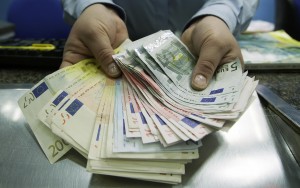
(AFP Photo)
By: Muhammad Ayat & Ahmed Farhat
Abdullah Shahata, Economics Advisor to the Minister of Finance, stated that the move would include new fees on nonessential imports and recreational goods in order to restrain speculation in the country’s exchange market and lift pressure on the Egyptian pound. He said this would help increase the true value of the country’s foreign currency reserves.
Egypt’s foreign currency reserves have dropped over the last 2 years to $13.6bn from $36bn at the beginning of 2011.
He added that efforts to close Egypt’s $19bn finance deficit would not be limited to the country’s IMF loan. $10bn worth of aid from other sources is also waiting to be approved when Egypt secures the IMF funds. Shahata said that the government would be able to borrow from other international sources, but that high interest rates served as an obstacle to many of these deals.
He added that the government sought to increase the share of gas purchased from foreign partners and had decided to increase the price of 1 million BTU of gas from $4 to $6 in an attempt to increase dollar reserves.
Shahata denied that the economic and social reform program created to secure the IMF loan included setting fixed prices for 92 and 95 octane gas, but did state that it would include a new strategy for the implementation of fuel subsidies.
Egypt’s Finance Minister Al-Morsi Hegazy stated that the government had also placed “1/1000” stamp taxes on daily stock market exchanges, in conjunction with a new tax on coupon dividends, a waiver of bonus shares, and the preservation of its tax on mergers and divestitures.




